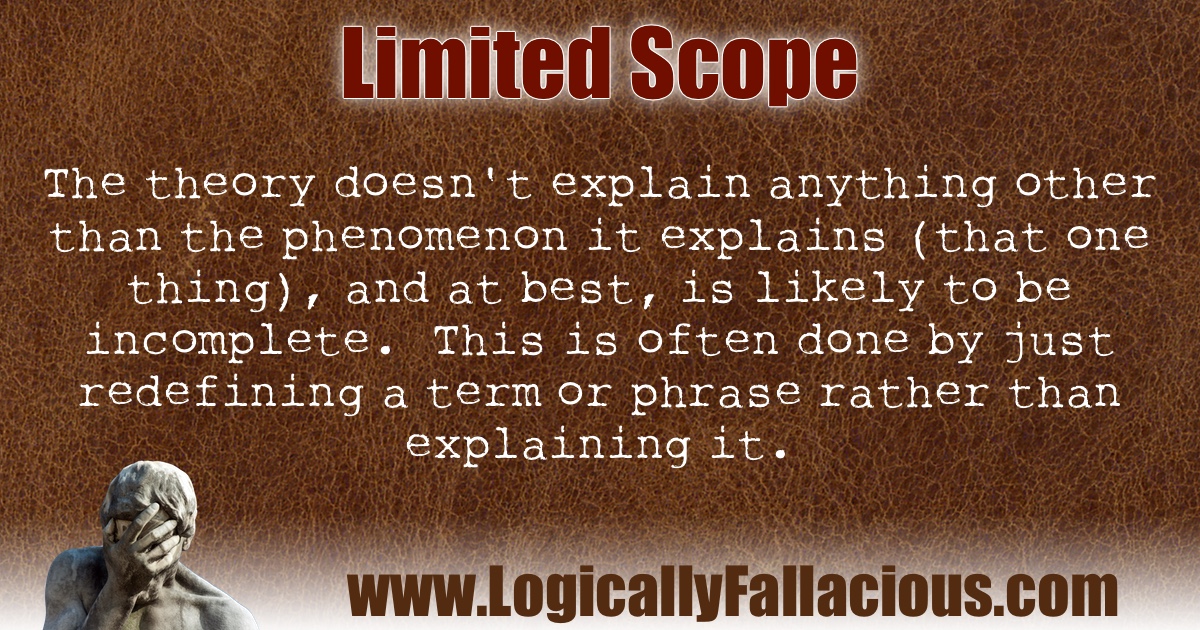Description: The theory doesn't explain anything other than the phenomenon it explains (that one thing), and at best, is likely to be incomplete. This is often done by just redefining a term or phrase rather than explaining it.
Logical Form:
Theory X is proposed to explain Y.
Theory X explains nothing else but Y.
Example #1:
My car broke down because it is no longer working.
Explanation: “It isn’t working” is just another way of saying “broke down”, and fails to explain why it broke down.
Example #2:
People often make hasty decisions because they don’t take enough time to consider their choices.
Explanation: Not taking enough time to consider choices is precisely what a hasty decision is. Again, no explanation is offered, just a definition in place of an explanation.
Exception: If “because” is replaced with a phrase like, “in other words”, then it is a deliberate clarification and not a fallacy.
Fun Fact: Limited depth and limited scope fallacies are sometimes known as fallacies of explanation.

References:
Farha, B. (2013). Pseudoscience and Deception: The Smoke and Mirrors of Paranormal Claims. University Press of America.